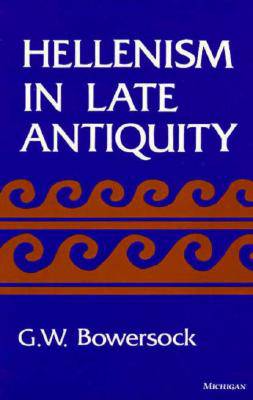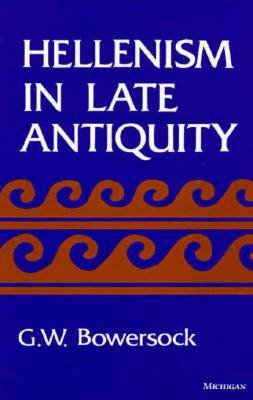
- Afhalen na 1 uur in een winkel met voorraad
- Gratis thuislevering in België vanaf € 30
- Ruim aanbod met 7 miljoen producten
- Afhalen na 1 uur in een winkel met voorraad
- Gratis thuislevering in België vanaf € 30
- Ruim aanbod met 7 miljoen producten
Zoeken
€ 33,45
+ 66 punten
Omschrijving
The extraordinary adaptability and durability of Greek culture in times of momentous change is revealed in this book, as G. W. Bowersock seeks to interpret Hellenism in a predominantly Christian world. In this effort he sheds new light on a late paganism that has often been seen as moribund and shows it to have been unexpectedly vigorous.
Hellenism, comprising the language, thought, mythology, and images of the Greeks, contributed fundamentally to the evolution of early Christianity. It had spread across the lands of the Eastern Mediterranean for many centuries before Constantine established Christianity as the official religion of the Byzantine government. But Hellenism served no less to disseminate and strengthen paganism--a role that has hitherto been little appreciated or studied. The local traditions of Asia Minor, Egypt, and the Near East survived in most cases by sharing common forms of expression with the Christians. Hellenism clearly allowed late pagans of widely differing traditions to communicate with each other. At the same time it gave to both Christianity and Islam a pagan context that enjoyed much greater public recognition then than now. And so the author shows that Hellenism illuminates the wholeness of the late antique world in the East, the interaction of its paganism and its Christianity. Dionysus and Christ flourished together.
". . . Bowersock has given us a new unifying perspective for the turbulent religious history of four centuries--the idea of a common cultural medium within (and against) which differing religious traditions evolved and inter-penetrated." --New York Times Book Review
". . . a formidable achievement . . . [an] elegant and powerfully original book." --Times Literary Supplement
G. W. Bowersock is Professor of Ancient History in the School of Historical Studies, Institute for Advanced Study, Princeton, New Jersey.
Hellenism, comprising the language, thought, mythology, and images of the Greeks, contributed fundamentally to the evolution of early Christianity. It had spread across the lands of the Eastern Mediterranean for many centuries before Constantine established Christianity as the official religion of the Byzantine government. But Hellenism served no less to disseminate and strengthen paganism--a role that has hitherto been little appreciated or studied. The local traditions of Asia Minor, Egypt, and the Near East survived in most cases by sharing common forms of expression with the Christians. Hellenism clearly allowed late pagans of widely differing traditions to communicate with each other. At the same time it gave to both Christianity and Islam a pagan context that enjoyed much greater public recognition then than now. And so the author shows that Hellenism illuminates the wholeness of the late antique world in the East, the interaction of its paganism and its Christianity. Dionysus and Christ flourished together.
". . . Bowersock has given us a new unifying perspective for the turbulent religious history of four centuries--the idea of a common cultural medium within (and against) which differing religious traditions evolved and inter-penetrated." --New York Times Book Review
". . . a formidable achievement . . . [an] elegant and powerfully original book." --Times Literary Supplement
G. W. Bowersock is Professor of Ancient History in the School of Historical Studies, Institute for Advanced Study, Princeton, New Jersey.
Specificaties
Betrokkenen
- Auteur(s):
- Uitgeverij:
Inhoud
- Aantal bladzijden:
- 132
- Taal:
- Engels
- Reeks:
Eigenschappen
- Productcode (EAN):
- 9780472064182
- Verschijningsdatum:
- 1/01/1996
- Uitvoering:
- Paperback
- Formaat:
- Trade paperback (VS)
- Afmetingen:
- 152 mm x 233 mm
- Gewicht:
- 272 g

Alleen bij Standaard Boekhandel
+ 66 punten op je klantenkaart van Standaard Boekhandel
Beoordelingen
We publiceren alleen reviews die voldoen aan de voorwaarden voor reviews. Bekijk onze voorwaarden voor reviews.











